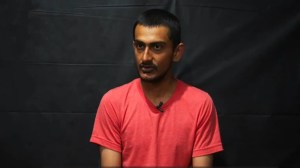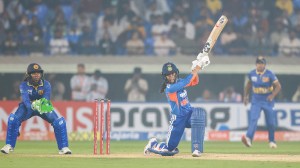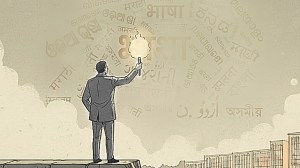No, they can’t — feeling hot and sweaty are, in fact, the symptoms of an impending heart attack, not the cause of one.

“Staying outdoors in intense heat may cause dehydration and damage to the heart, but that is not very common, Dr J K Sharma, cardiologist at Park Hospital in New Delhi, said. Heart attacks, he said, are more the result of a prolonged poor lifestyle, and years of neglect.
“The problem, simply, is that our younger population is more prone to heart attacks. If you look at the number of people who suffer heart attacks before the age of 40 years, it is four times what is seen in Western countries. In fact, their (the West’s) incidence of heart attacks in the young is going down while ours is going up,” Dr Sharma said.
There is a need to adopt a healthy lifestyle from a young age because the damage to the heart happens over time, he said. “If you have a heart attack today, it does not mean that the heart was damaged today, it is years of neglect of your health,” he said.
KK was 53, but heart attacks are in general more dangerous for people below the age of 50 years. “When a person has blocked vessels for years, collateral supplies develop. So, when they do have a heart attack, these collateral vessels continue to supply blood to the affected heart muscles. Hence, their chances of survival are higher,” Dr Sharma said.
What happens during a heart attack, known in medical terms as myocardial infarction (MI)?
Story continues below this ad
MI, commonly known as a heart attack, is caused by a reduction or stoppage of blood flow to a portion of the heart muscles (myocardium) in the middle layer of the heart wall. These muscles are responsible for keeping the heart pumping blood.
When the coronary artery is obstructed, the supply of oxygen-rich blood to the heart muscles is cut off. Prolonged deprivation of oxygen-rich blood can result in cell death or damage to the heart muscles.
“When we are born, our arteries are smooth and elastic, resulting in very good blood flow. Over time, cholesterol is deposited on the inside of arteries… The major triggers are age, chronic health conditions, and comorbidities like diabetes, cholesterol, high blood pressure, tobacco use, stress, a sedentary lifestyle, and genetics,” said interventional cardiologist Dr Sameer Dani, CEO of Ahmedabad’s Apollo CVHF Heart Institute.
“Due to continuous cholesterol deposition on the arterial walls, a crack appears in the inner lining of the heart muscle, causing the blood to clot. The moment this obstructs the artery, a heart attack occurs. So, although the causative process is gradual, the heart attack itself happens suddenly,” he said.
Story continues below this ad
A heart attack manifests itself through some discomfort, such as chest pain, which can spread to the neck, jaw, shoulder, or arm.

To what extent does family history make one vulnerable to a heart attack?
Dr Dani said the risk of a heart attack in an individual with a family history can be brought down significantly if the individual mitigates other risk factors such as controlling diabetes, cholesterol levels, giving up tobacco and maintaining an active lifestyle with a balanced diet. Yet, such an individual will always face a higher risk of a heart attack than an individual with no risk factor and no family history.
“Family history is an important risk factor which has equivalence of two other risk factors (say the risk of a heart attack in an individual without a family history of heart attacks but who has high cholesterol and leads a sedentary lifestyle),” Dr Dani said.
Story continues below this ad
Dr Dani recommends that individuals with a family history of heart attacks must start early with periodic health check-ups, say from the age of 20-25, and with taking care of other risk factors.
Are all heart attacks MI?
All heart attacks are basically MI, Dr Dani said, but there are some subsets. One is sudden cardiac death or sudden cardiac arrest.
“Sudden cardiac arrest happens 80-90% of the time due to a heart attack, but in about 15-20% of the cases, it happens without a heart attack or stoppage of heart function. This explains the death of some athletes. This happens because the heart suddenly becomes irregular in pumping blood — either because the heart muscles have become thick and need more blood supply, or because there is electrical instability in some parts of the heart muscles,” Dr Dani said.
Story continues below this ad
Why do some people survive heart attacks and some don’t?
A person can suffer a “silent” heart attack, which goes undetected at the time it happens as there is no manifestation of usual symptoms and is only detected in the form of unusual heart activity reported in an ECGs. “This happens when the arteries are narrowing very slowly and more commonly seen in diabetics, but it can happen to anybody,” Dr Dani said.
That chances of survival after a heart attack depend on a couple of factors. “One, if there is very large heart muscle damage, which is dependent on which artery is blocked, the chances of death are high. Second is, if you have an active lifestyle, you are more likely to survive a heart attack,” Dr Dani said.









































